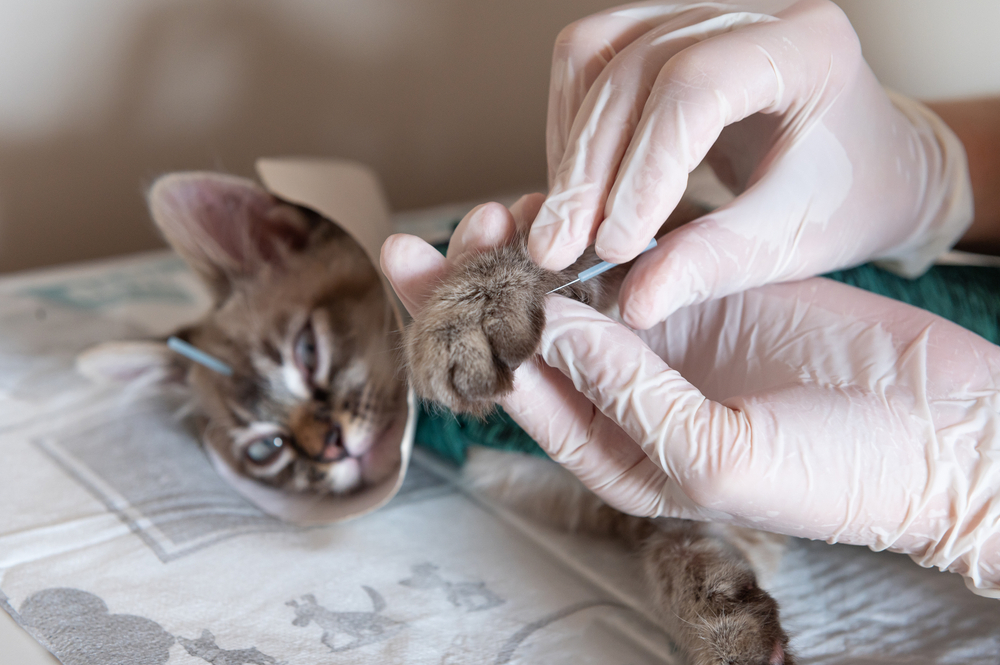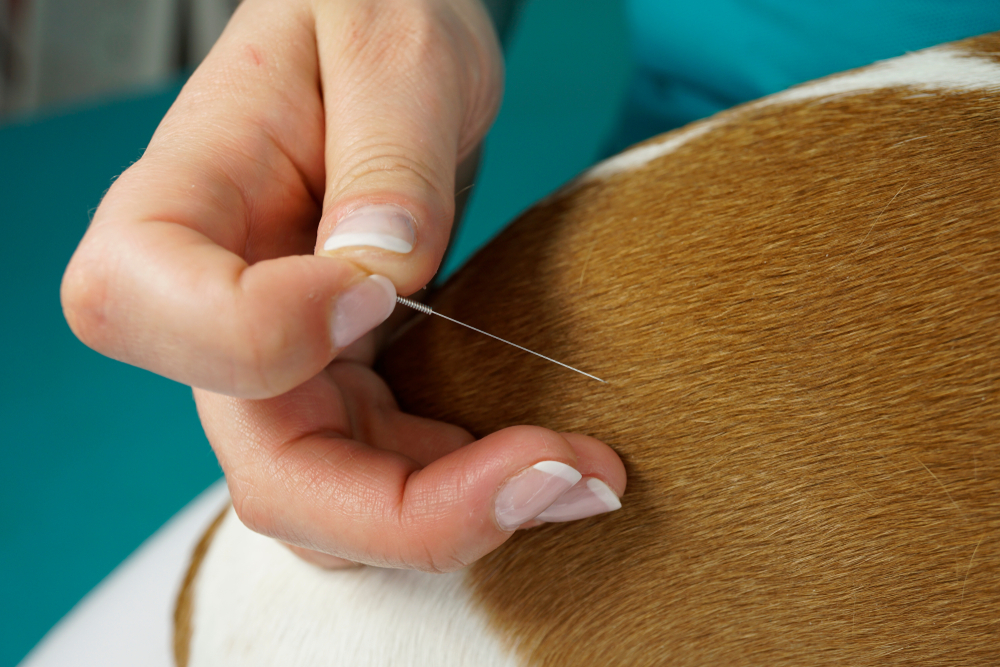When your pet has a medical or behavioral issue, you want to ensure you are doing everything possible, from administering supplements to scheduling surgery, to manage their condition and help them heal as quickly as possible. In many cases, acupuncture can be the perfect complementary therapy to help your furry pal feel better, heal naturally, and experience an improved quality of life, all without unpleasant side effects.
To help determine if acupuncture is a viable therapy for your pet’s condition, learn more about this treatment modality, which is becoming an increasingly widespread veterinary care option. To help you make an informed decision about your pet’s treatment plan, our Oak Creek Veterinary Care team answers your frequently asked questions about acupuncture.
Question: How does acupuncture for pets work?
Answer: Acupuncture advocates believe that the body has channels (i.e., meridians) through which energy (i.e., Qi) flows. Illness or injury disrupts the natural energy flow. To eliminate stagnation and restore proper Qi flow, an acupuncture practitioner inserts fine needles into particular body points. Typically, these points are located at nerve or blood vessel bundles, and, when stimulated, produce positive physiologic effects within the body, healing without drugs or surgery, and creating a synergistic action when provided in tandem with traditional Western medicine treatments.
Q: What benefits does acupuncture provide pets?
A: In general, acupuncture works to speed up the body’s natural healing mechanisms, making it a beneficial therapy for almost any condition. When neurohormonal pathways are stimulated in the body through acupuncture, the following effects can occur:
- Inflammation reduction
- Nerve stimulation
- Blood circulation improvement
- Muscle spasm relief
- Hormone release
- Pain reduction
Q: What conditions can acupuncture ease in pets?
A: A range of pet mental and physical health conditions benefit from acupuncture treatment, with a main focus on inflammatory problems. Acupuncture can help ease the signs of these common conditions:
- Degenerative joint disease
- Degenerative myelopathy
- Intervertebral disc disease (IVDD)
- Trauma
- Asthma
- Inflammatory skin conditions (e.g., allergies, lick granulomas)
- Hormonal or metabolic conditions
- Postoperative recovery
- Gastrointestinal (GI) problems
- Epilepsy
- Cancer signs and treatment side effects (e.g., nausea, inappetence, pain)
Q: Will my pet experience any side effects from acupuncture?
A: Acupuncture is an incredibly safe therapy that rarely causes side effects. The most common side effect your pet may exhibit is a slight worsening in their condition or increased lethargy for 24 to 48 hours after treatment. This is a sign that physiologic processes are taking place within the body, and that healing has begun.
During a session, your pet may feel slight tingling or numbness, which is common for an acupuncture treatment. Your pet may shift, startle, or vocalize if they feel unusual, but these effects are transient.
Q: How long after my pet’s acupuncture session will their condition begin improving?
A: Pets receiving acupuncture for chronic conditions, such as arthritis or allergies, may start showing substantial improvement after a few sessions. Depending on your pet’s response to treatment, the condition being treated, and their ability to tolerate other therapies, acupuncture can be performed as often as weekly, and the time between sessions can be extended to quarterly.
Q: Can my pet who hates getting shots tolerate acupuncture?
A: Although your pet may not appreciate needle pokes, no matter how essential vaccinations and medication injections are for preventing and treating illness, acupuncture needles are much finer than needles used for administering injections. These hair-thin needles typically cause minimal to no discomfort during insertion, and then your pet will relax while the needles remain in place. However, a pet who is exceptionally sensitive to any handling, or who is unable to remain relatively still during the 20- to 30-minute sessions, is not the best candidate for this alternative treatment modality.
Q: Is acupuncture right for my pet?

A: Acupuncture is an effective treatment for a wide variety of health problems, but not all pets are ideal candidates for this therapy. Acute infections, wounds, cancerous masses, pregnancy, and blood clotting disorders may preclude your pet from being a good candidate for acupuncture. In addition, keep in mind that a pet who has a seizure disorder should not receive electroacupuncture, and this technique should be used with caution if a pet has a pacemaker.
If your furry pal has a chronic medical condition, acupuncture may help ease their suffering. To determine whether acupuncture would benefit your pet, contact our Oak Creek Veterinary Care team to schedule a Traditional Chinese Veterinary Medical (TCVM) exam.




Leave A Comment